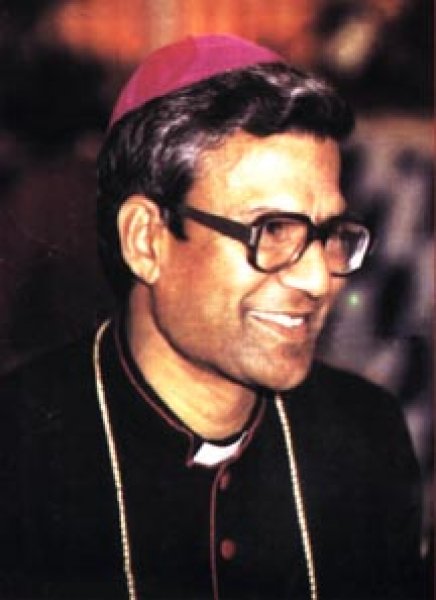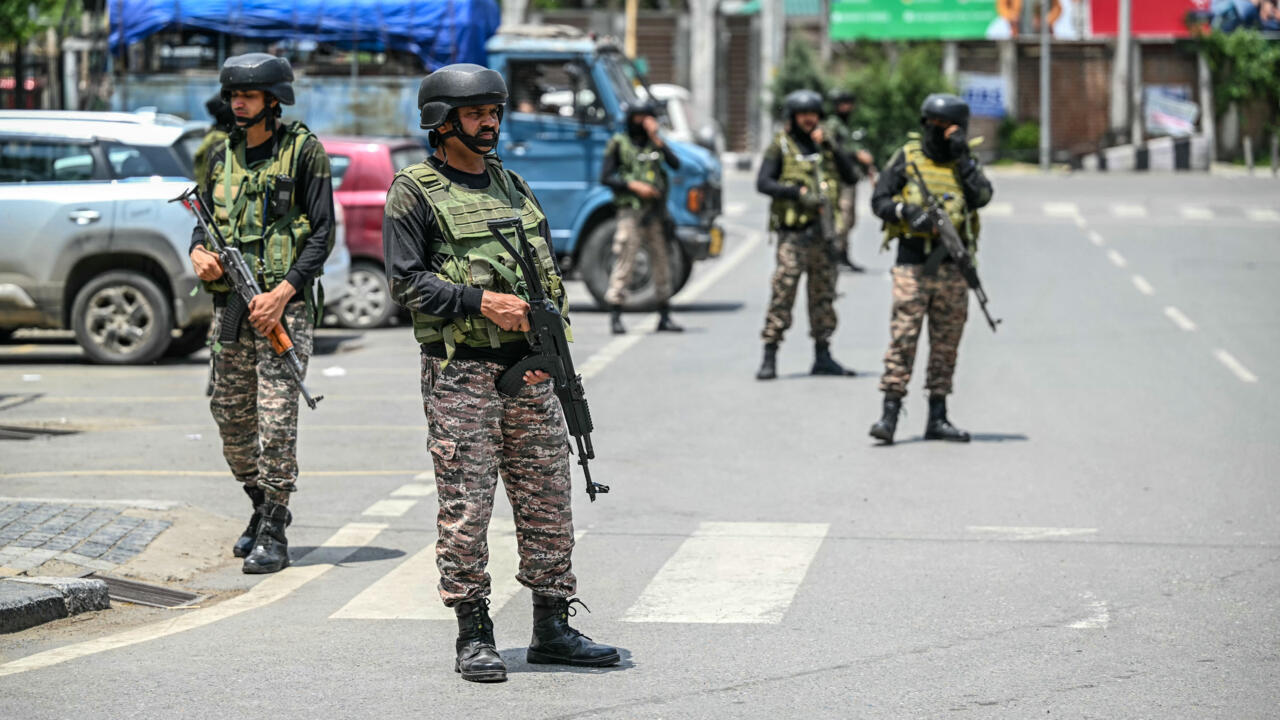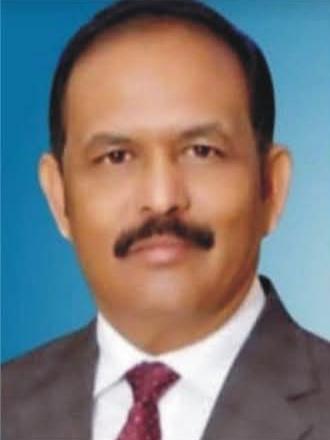The recent conviction of three prominent Kashmiri women leaders—Asiya Andrabi, Fahmeeda Sofi, and Nahida Nasreen—by a National Investig
Who killed Bishop John Joseph? Ramifications of the Pakistan Blasphemy Laws (in three parts) By Dr. Stephen Gill

Bishop John Joseph ended his life to end the blasphemy laws of Pakistan, which are the time bombs tied to the bodies of the Christians, while the remote control is in the hands of the Muslims who can press the button any time to blow them up. The Pakistan of today is under the martial law of religion. Misusing the blasphemy laws, fundamentalists keep fanning the fire of hatred endangering the freedom of the peace-loving minorities. The article was written about 11 years ago.
(PART ONE)
No one was present when Bishop John Joseph killed himself in Sahiwal (formerly Montgomery), Pakistan, on the 6th of May at 9:30 in the evening in 1998. How his hand that held a revolver was raised to his temple is a secret that is buried and may remain buried in the womb of solitude.
Bishop John Joseph gave his life to protest the death sentence of Ayub Masih. Before taking his life, Bishop John Joseph had tried everything that was humanly possible to bring sanity into the insane atmosphere of persecution. It was in utter despair that Bishop John Joseph killed himself in the dark corridors of the court where Ayub Masih was condemned to death on the 27th of April. In the same corridors, about six months before that, on the 6th of November 1997, Ayub Masih had escaped an assassination attempt. The evening the Bishop killed himself, he had addressed a gathering of the faithful to pray for the victims of the blasphemy laws. There, he spoke about death and resurrection and denounced Masih's conviction. After the gathering, he broke his fast with a cup of soup at the dinner that was arranged by Catholic sisters. On their insistence, he had a few bites of an apple.
When everyone left, the Bishop asked his personal driver Patras and the parish priest Father Yaqoob to take him to the court where the verdict against Ayub Masih had been given. When they were at the court gate, the Bishop asked Father Yaqoob to be in the car and his driver to turn the car. He himself went into the corridors of the court. Moments later, they heard a gun shot. They rushed inside to find Bishop John Joseph, a human rights activist, founding chairperson of the National Commission for Justice and Peace, shot in the temple of his head. His death was instantaneous.
According to the media and the press release from the National Commission for Justice and Peace, the Bishop's death is associated with the death sentence of his parishioner, 27 year old Ayub Masih.
The person who initiated the whole tragedy was a Muslim named Mohammed Akram who lodged a blasphemy report against Ayub Masih on October 14 at Arifwala Saddar Police Station. Ayub Masih and his brother Samsoon were immediately arrested by the police from their home. Akram alleged that Masih approved of Salman Rashdie's Satanic Verses, claimed to be blasphemous.
Masih was booked under Section 295-A of the Pakistan penal code, which prescribes 10 years in prison for disgracing religious beliefs. However, the First Information Report (FIR), was later amended, "allegedly under pressure from the Muslims of the area,"1 Under this amendment, section 295-C, there is only one type of penalty and that penalty is death. Non-Muslim defendants are not granted bail.
The residents of Arifwala demonstrated to hang Ayub Masih. Shops were closed. Even the Bar Association went on a strike and organized a procession to support the occuser.2
The Church sources said that the newspapers did not give full coverage to all the events. There were demonstrations in most cities and villages around the area against Christians. 14 Christian families were forcibly evacuated from the village in the wake of the blasphemy accusations against Masih and his younger brother Samsoon, who was released the day following.
The Friday Times noted that "The Christian families of Manoo Majra were not even given time to collect their belongings and other valuables before being banished from the village." Muslims told the newspaper TFT that Masih and his brother had been severely beaten up and that a crowd went to the Christian houses, abused and mistreated all those that they could lay their hands on. They did not even spare our women," a Christian villager also told the TFT.3
Due to pressure from the extremists, no lawyer agreed to represent Masih in court. That was not an easy situation. With the help of Bishop John Joseph, the Human Right Commission came to rescue Ayub Masih.
The Mirror, a newsletter of the National Commission for Justice and Peace, published from Lahore, Pakistan, states that Ayub Masih "was fired upon in the custody of the Sessions Court in Sahiwal. The police remained unmoved and looked aside. Ayub's brother and mother were present when he was shot. They identified the assailant as Mohammed Akram, the accuser of Ayub Masih. The family of Ayub Masih tried to lodge a case with the police, but the police refused even to register the case."4
Ayub Masih was convicted and sentenced to death by the court on the 27th of April 1998. Journalists were not allowed to be present for the court hearing. According to press
reports, his lawyers said that the court relied on the verbal testimony and no circumstantial evidence was provided to prove the allegation against the accused.
Mohammed Rafique, an official from the Saddar Police Station, claimed that Masih had confessed his crime. On the other hand, Masih's relatives told representatives of the Human Rights Commission of Pakistan that he was tortured and forced to sign that confession.
The International Christian Concern states that police use every possible mean to compel victims to confess their crimes. Tortures include beating, burning with cigarette ends, sexual assaults, electric shock, whipping on the soles of the feet, hanging upside down, prolonged isolation, denying food and water and other sadistic methods. Police interfere with medical reports to give the impression that the victim died a natural death. Women are also detained usually for sexual abuse.5
Amnesty International in their newsletter of July 1994 expresses the same view when it says that "Ill-treatment in police custody is frequently reported, and may be exacerbated by the emotional manner in which charges of blasphemy are brought and publicized and the accused vilified by their accusers."6
"The FIR (police report) story is largely a fabrication. Masih's elder brother Maqbool Masih said that there was an exchange of only just one sentence between two youths, followed by a light scuffle. From the police report, it appears that Ayub is some kind of scholar and delivered a whole lecture."7
Ayub Masih had tenth grade education and therefore he did not know English to be able to read and speak. This fact was not considered by the court. Moreover, no one can dare to translate the book in the language of Pakistan, and nobody knows what it was that Ayub Masih is alleged to have said, not even the court.
Compass Direct tells the real story behind the story when it says: "Local Christians allege that the blasphemy charges were a cover up for a land dispute against Masih, whose family had applied under a government program to gain official possession of the lands on which they had built homes. At least 12 other Christian families in the village were living in homes provided by their landlords, in exchange for tilling the owners' fields."8
(PART ONE)
No one was present when Bishop John Joseph killed himself in Sahiwal (formerly Montgomery), Pakistan, on the 6th of May at 9:30 in the evening in 1998. How his hand that held a revolver was raised to his temple is a secret that is buried and may remain buried in the womb of solitude.
Bishop John Joseph gave his life to protest the death sentence of Ayub Masih. Before taking his life, Bishop John Joseph had tried everything that was humanly possible to bring sanity into the insane atmosphere of persecution. It was in utter despair that Bishop John Joseph killed himself in the dark corridors of the court where Ayub Masih was condemned to death on the 27th of April. In the same corridors, about six months before that, on the 6th of November 1997, Ayub Masih had escaped an assassination attempt. The evening the Bishop killed himself, he had addressed a gathering of the faithful to pray for the victims of the blasphemy laws. There, he spoke about death and resurrection and denounced Masih's conviction. After the gathering, he broke his fast with a cup of soup at the dinner that was arranged by Catholic sisters. On their insistence, he had a few bites of an apple.
When everyone left, the Bishop asked his personal driver Patras and the parish priest Father Yaqoob to take him to the court where the verdict against Ayub Masih had been given. When they were at the court gate, the Bishop asked Father Yaqoob to be in the car and his driver to turn the car. He himself went into the corridors of the court. Moments later, they heard a gun shot. They rushed inside to find Bishop John Joseph, a human rights activist, founding chairperson of the National Commission for Justice and Peace, shot in the temple of his head. His death was instantaneous.
According to the media and the press release from the National Commission for Justice and Peace, the Bishop's death is associated with the death sentence of his parishioner, 27 year old Ayub Masih.
The person who initiated the whole tragedy was a Muslim named Mohammed Akram who lodged a blasphemy report against Ayub Masih on October 14 at Arifwala Saddar Police Station. Ayub Masih and his brother Samsoon were immediately arrested by the police from their home. Akram alleged that Masih approved of Salman Rashdie's Satanic Verses, claimed to be blasphemous.
Masih was booked under Section 295-A of the Pakistan penal code, which prescribes 10 years in prison for disgracing religious beliefs. However, the First Information Report (FIR), was later amended, "allegedly under pressure from the Muslims of the area,"1 Under this amendment, section 295-C, there is only one type of penalty and that penalty is death. Non-Muslim defendants are not granted bail.
The residents of Arifwala demonstrated to hang Ayub Masih. Shops were closed. Even the Bar Association went on a strike and organized a procession to support the occuser.2
The Church sources said that the newspapers did not give full coverage to all the events. There were demonstrations in most cities and villages around the area against Christians. 14 Christian families were forcibly evacuated from the village in the wake of the blasphemy accusations against Masih and his younger brother Samsoon, who was released the day following.
The Friday Times noted that "The Christian families of Manoo Majra were not even given time to collect their belongings and other valuables before being banished from the village." Muslims told the newspaper TFT that Masih and his brother had been severely beaten up and that a crowd went to the Christian houses, abused and mistreated all those that they could lay their hands on. They did not even spare our women," a Christian villager also told the TFT.3
Due to pressure from the extremists, no lawyer agreed to represent Masih in court. That was not an easy situation. With the help of Bishop John Joseph, the Human Right Commission came to rescue Ayub Masih.
The Mirror, a newsletter of the National Commission for Justice and Peace, published from Lahore, Pakistan, states that Ayub Masih "was fired upon in the custody of the Sessions Court in Sahiwal. The police remained unmoved and looked aside. Ayub's brother and mother were present when he was shot. They identified the assailant as Mohammed Akram, the accuser of Ayub Masih. The family of Ayub Masih tried to lodge a case with the police, but the police refused even to register the case."4
Ayub Masih was convicted and sentenced to death by the court on the 27th of April 1998. Journalists were not allowed to be present for the court hearing. According to press
reports, his lawyers said that the court relied on the verbal testimony and no circumstantial evidence was provided to prove the allegation against the accused.
Mohammed Rafique, an official from the Saddar Police Station, claimed that Masih had confessed his crime. On the other hand, Masih's relatives told representatives of the Human Rights Commission of Pakistan that he was tortured and forced to sign that confession.
The International Christian Concern states that police use every possible mean to compel victims to confess their crimes. Tortures include beating, burning with cigarette ends, sexual assaults, electric shock, whipping on the soles of the feet, hanging upside down, prolonged isolation, denying food and water and other sadistic methods. Police interfere with medical reports to give the impression that the victim died a natural death. Women are also detained usually for sexual abuse.5
Amnesty International in their newsletter of July 1994 expresses the same view when it says that "Ill-treatment in police custody is frequently reported, and may be exacerbated by the emotional manner in which charges of blasphemy are brought and publicized and the accused vilified by their accusers."6
"The FIR (police report) story is largely a fabrication. Masih's elder brother Maqbool Masih said that there was an exchange of only just one sentence between two youths, followed by a light scuffle. From the police report, it appears that Ayub is some kind of scholar and delivered a whole lecture."7
Ayub Masih had tenth grade education and therefore he did not know English to be able to read and speak. This fact was not considered by the court. Moreover, no one can dare to translate the book in the language of Pakistan, and nobody knows what it was that Ayub Masih is alleged to have said, not even the court.
Compass Direct tells the real story behind the story when it says: "Local Christians allege that the blasphemy charges were a cover up for a land dispute against Masih, whose family had applied under a government program to gain official possession of the lands on which they had built homes. At least 12 other Christian families in the village were living in homes provided by their landlords, in exchange for tilling the owners' fields."8
You May Also Like
Open Doors, an international organization that provides protection to vulnerable Christians around the world, released a World Watch List in 2025,
Accepting the Lord Jesus Christ and following His commandments is a difficult and arduous path. Every step of the way is fraught with suffering, pe

"Trial of Pakistani Christian Nation" By Nazir S Bhatti
On demand of our readers, I have decided to release E-Book version of "Trial of Pakistani Christian Nation" on website of PCP which can also be viewed on website of Pakistan Christian Congress www.pakistanchristiancongress.org . You can read chapter wise by clicking tab on left handside of PDF format of E-Book.








